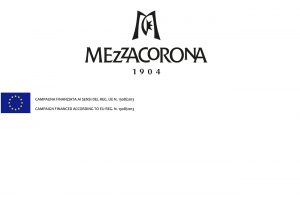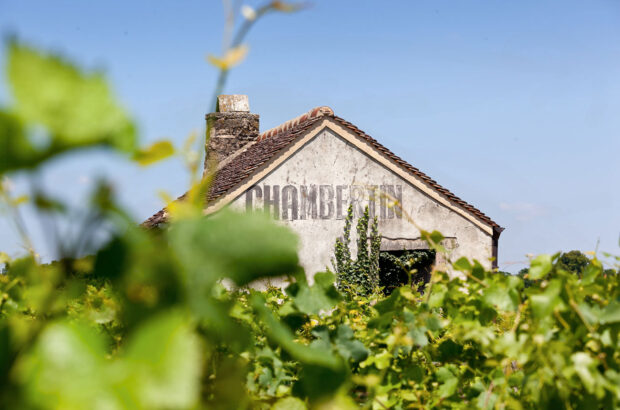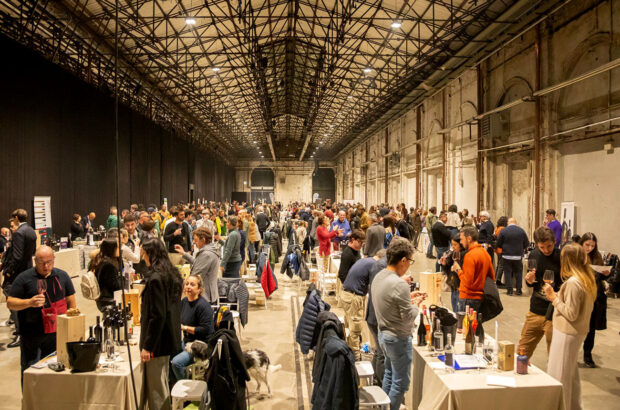Mezzacorona’s long-standing commitment to sustainability has driven the company’s philosophy since its inception in 1904. Following a holistic approach that has placed equal focus on the environment, operational and social components of sustainable practices, Mezzacorona has led its members on an ongoing quest to value the unique landscape of Trentino, of which they are privileged custodians. Mezzacorona’s shared effort has been formally acknowledged with the SQNPI certification (National Quality System of Integrated Production), with all Mezzacorona wines showing the iconic bee logo since the 2017 harvest.
Eager to take its commitment one step further, Mezzacorona has started a creative and educational project that focuses on upcycled food. A multidisciplinary team of experts from Harvard Law School, World Wildlife Fund, Natural Resources Defense Council, ReFED, and others leading institutions, officially defined ‘upcycled food’ in 2020: ‘Upcycled foods use ingredients that otherwise would not have gone to human consumption, are procured and produced using verifiable supply chains, and have a positive impact on the environment.’
The concept builds on the no-waste and nose-to-tail approaches which British diners are already so familiar with, while also evoking the ancient ‘grandma’ traditions of ‘using everything you can’.
The idea behind Mezzacorona’s initiative is to bring awareness to the amount of waste produced in modern society and the way in which even delicious ingredients of high nutritional value are thrown away for the sake of convenience. And it does so by bringing traditional recipes from Trentino to the forefront.
In the same way that Mezzacorona acknowledges its responsibility and ability to make a difference, in every bottle of wine it produces, the company wants to empower each individual to make each meal and moment of pleasure count.
From the quality of the soils to the assessment of the supply chain, Mezzacorona has sought to monitor and minimise any negative impact on the planet, and use resources, from water to energy, mindfully. This project invites wine lovers to apply the same mindfulness to the kitchen – while enjoying delicious, and sometimes forgotten, flavours.
As such, the wines of Mezzacorona serve as perfect companions to these exquisite recipes which are as friendly for the planet as they are for your budget. Authenticity, approachability and value; the fundamental principles of ‘upcycled food’ that are also the core values of Mezzacorona.
Two upcycling recipes to try:
Canederli with wild herbs
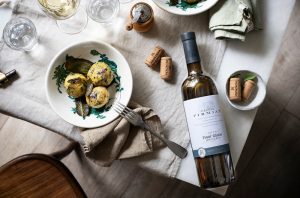
Ingredients (serves 4)
- 300g fresh raw herbs (borage, mint, sage, marjoram, chicory)
- 150g stale breadcrumbs
- 1 glass of milk
- 1 egg + 1 yolk
- 2 tsp grated parmesan
- 25g butter + more for seasoning
- 1 medium onion
- 1 tsp breadcrumbs
- Flour to taste
- Vegetable broth
Method
Wash the herbs, separate the fibrous parts and add them to the vegetable broth. Set aside.
Warm the milk and pour some diced bread into a bowl until it is naturally absorbed.
Chop the onion and fry it in butter. As soon as it begins to soften, add the raw herbs. Let them sizzle, checking often.
When they are soft, chop them again and mix everything with the previously soaked bread, along with the cheese and eggs. If the dough is soft and difficult to handle, add the additional breadcrumbs.
As soon as the mixture acquires consistency and becomes workable, shape it into medium balls (canederli) and dip them in flour. Then let it rest in the fridge for a minimum two hours, preferably overnight.
Bring the vegetable broth to a boil and cook the canederli in for 15 minutes.
Sauté them in the pan with melted butter and sage.
Pair with:
Castel Firmian, Pinot Grigio Trentino DOC
Marble cake with dry biscuits and dark chocolate
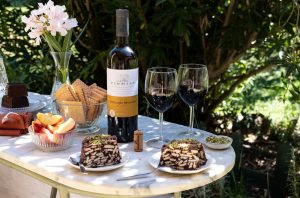
Ingredients (serves 6-8)
- 200g leftover dry biscuits of various kinds (also leftover cereals, dried fruit, candied fruit)
- 250g dark chocolate
- 100g caster sugar
- 2 eggs
- 20g butter
- 20ml orange liqueur
- Zest of one organic orange
- Bitter cocoa nibs
- chopped pistachios
Method
Whip the eggs with the sugar and set aside.
Melt the dark chocolate with the butter, slowly, add the whipped eggs and cook over low heat for 5 minutes. When the mixture is smooth, detaching from the sides of the pan easily, remove from the heat and leave to cool in the freezer for a few minutes.
Weigh the biscuits and break them coarsely with your hands. Do not to crumble them too much, to obtain the marbled effect.
Take the chocolate mixture out of the freezer – it should be soft and not too liquid – add the orange liqueur and zest.
Pour the mixture over the biscuits, mixing with a spoon until all the dry biscuits have been incorporated into the chocolate mix.
Transfer to a mould lined with baking paper.
Place in the fridge for at least three or four hours, or in the freezer for approximately 40 minutes.
Sprinkle with cocoa nibs and chopped pistachios.
Pair with:
Castel Firmian, Teroldego Rotaliano DOC
Discover more about Mezzacorona
Connect on
Facebook | Instagram | YouTube
